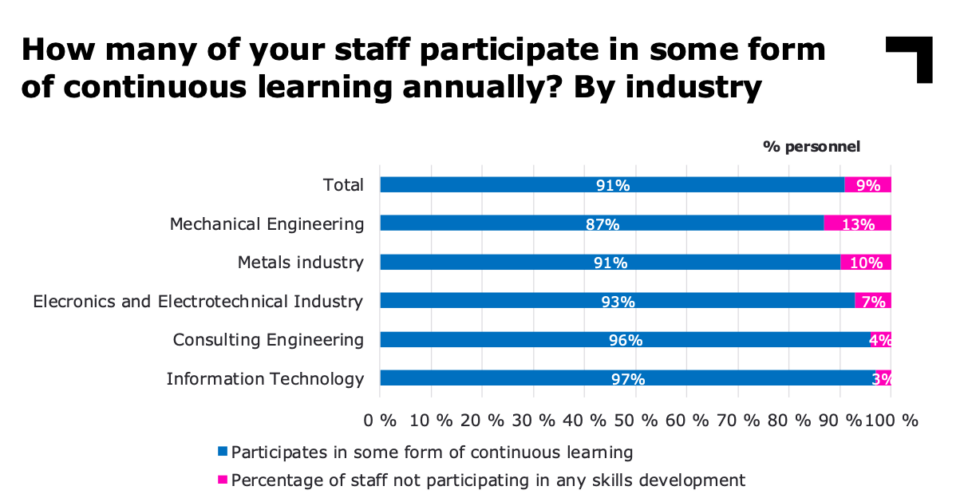Technology Companies know their skills needs – the education must follow suit

In today’s rapidly evolving technological landscape, continuous learning is not just a buzzword but a necessity. Continuous learning – lifelong learning – adult learning (Call it what you want!) has become increasingly important. A recent survey conducted by the Technology Industries of Finland highlights the importance of continuous learning and skills development in technology companies.
At the same time, Ursula von der Leyen, President of the European Commission, highlights, that we need much more focus in our investment on professional education and upskilling. She has said the most important thing: We need better cooperation with companies, because they know best what they need. The same is written in the recent European competitiveness report by Mario Draghi, the former prime minister of Italy: “The current underperformance of adult training systems reflects pervasive informational frictions and poor coordination between companies, workers and training organisations.”
Draghi highlights that updating and acquiring new skills during one’s career becomes essential during periods of heightened technological change. Adult learning is crucial for company performance, as a lack of qualified workers is hampering innovation and company growth, ultimately limiting the EU’s productivity and competitiveness.
At the same time that Draghi highlights the Finnish adult education system as one of the most successful in Europe, our survey this year confirms this observation: The survey, which included responses from 282 companies employing 35,900 people, reveals that a significant portion of the workforce is already engaged in continuous learning activities.
The data shows that the majority of employees (92%) participate in continuous learning activities yearly. The most popular way to develop skills is self-organized formal training, such as courses, workshops and training sessions organized internally. Actually, only 32% of employees participate in externally organized training. That leaves us with two questions: is the training provided by our educational institutions “on the pulse of the skills needs” and “is the education market functional for companies”?

While these numbers are promising, the key to maximizing the benefits of continuous learning lies in the flexibility and timelines of the training provided. Technology companies in cooperation with educational institutes must ensure that their training programs are adaptable to the specific needs of their workforce and are delivered at the right time. This means customized training programs, tailoring training sessions to address the unique challenges and requirements of different projects or providing training resources that employees can access exactly when they need them.
Two of Draghi’s proposals to close the skills gap hit the mark: The first, which involves collecting and leveraging granular data on skills needs, stocks, and flows (“skills intelligence”) to design skills policies, and the fifth, which focuses on adult learning and ensuring sufficient funding from Member States and private organisations, align well. The Technology Industries of Finland has long been studying skills data using AI. With this data-driven approach, we can better align training offerings with the skills needed by companies, addressing skills gaps even in the future.
By prioritizing continuous learning and ensuring that training is flexible and timely, technology companies can stay competitive and meet the demands of an ever-changing market. Embracing this approach will not only enhance the skills of their workforce but also drive innovation and growth within the industry. Continuous skills development is essential for Europe to remain competitive and adapt to the rapidly changing demands of the economy and labor market, ensuring sustainable growth and productivity in the future.
The author is Director of Skills and Competence in the Finnish Technology Industries, the chair of Ceemet´s Education and Training Committee and the co-chair of the Social Dialogue Education and Training Committee.
More information:

